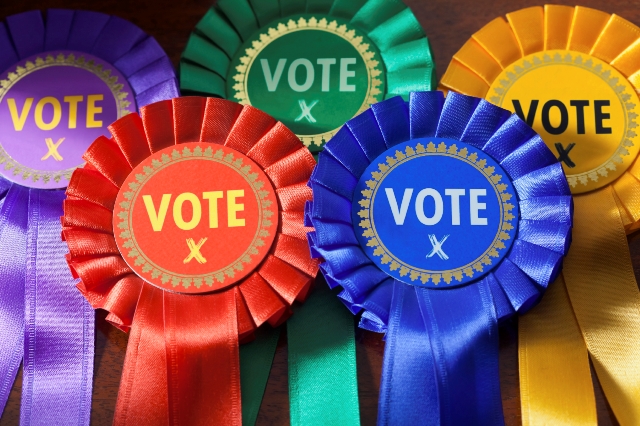Better Retailing has combed the proposed policies of the major UK parties to assess how store owners would be affected.
Retail crime
Three parties pledged to recruit more police officers – Conservatives (8,000 officers), Labour (13,000) and Reform (40,000).
The Conservatives also pledged ‘hot-spot policing’ and tougher sentences for assaults on shopworkers.
Labour pledged a new offence for assaults on shop workers, backed by community support officers patrolling high streets.
The Liberal Democrats pledged to scrap police and crime commissioners, to be replaced by “local police boards” made up of councillors and community representatives.
Meanwhile, the Green Party said it would clear the court backlog with a £2.5bn investment, while Reform pledged “automatic life imprisonment” for violent repeat offenders.
Taxes
The Conservatives would scrap the main rate of national insurance for the self-employed, saving store owners registered as self-employed around £180 per year at the current rate. Both main parties have pledged not to increase corporation tax.
Reform would cut corporation tax to 15% by year three, but would also introduce an “employer immigration tax” – a 20% national insurance business contribution on foreign workers.
On business rates, the Conservatives pledged to continue its package of exemptions and reliefs, and to “ease the burden” on retailers by increasing rates for distribution warehouses.
Labour pledged to replace rates with a system offering a greater share paid by “online giants”.
Reform said it would abolish rates for “high-street-based small businesses”, funded by an “online delivery tax”.
The Lib Dems also pledged to abolish rates and replace them with a “commercial landowner levy to help our high streets”.
Conversely, the Green party would remove relief for petrol stations.
Take a deep dive into three of the manifestos:
Labour manifesto pledges business rates system overhaul and levelling up of minimum wage
Lib Dem manifesto pledges replacement of PCCs, vape restrictions and soft drinks levy
Tory manifesto vows more police and vape restrictions, plus continued rates relief schemes
Product restrictions
The Conservatives, Labour and Lib Dems all pledged to restrict the display, branding and advertising of vapes, and to ban disposables.
While all three parties had backed the increases in the smoking age, it only appeared in the Conservative’s manifesto. Labour said it would also ban the sale of high-caffeine energy drinks to under-16s, and Lib Dems promised to extend the sugar tax to high-added-sugar juice and milk drinks.
Wages and employment
Under the Conservatives, national living wage could rise to £13 per hour by the end of parliament.
This figure would be £15 regardless of age under the Greens, offset by reducing small businesses’ national insurance payments.
Labour only revealed that it would remove the current wage bands, entitling all staff to the same minimum wage. It would also ban “exploitative zero-hour contracts” and give employees full rights from their first day on the job.
Lib Dems said an “independent review” would set “a genuine living wage”. Reform plans to cut income tax for low earners rather than pledging minimum wage increases.
Post Office (PO)
The Conservatives said the PO “requires a change of culture at the top to deliver the scale of change needed”.
Labour said it would “strengthen the PO network and support the development of new products, services and business models”.
The Lib Dems said they would encourage branches “to become community banking and government hubs, and keep DVLA services available at PO counters”.
Deposit return scheme (DRS)
The Conservatives pledged to continue their repeatedly delayed plans for a UK-wide DRS, and to “minimise the impact on businesses”.
While the Lib Dems matched this pledge, it was absent from all other UK party manifestos.
Read more politics news and articles for retailers



Comments
This article doesn't have any comments yet, be the first!